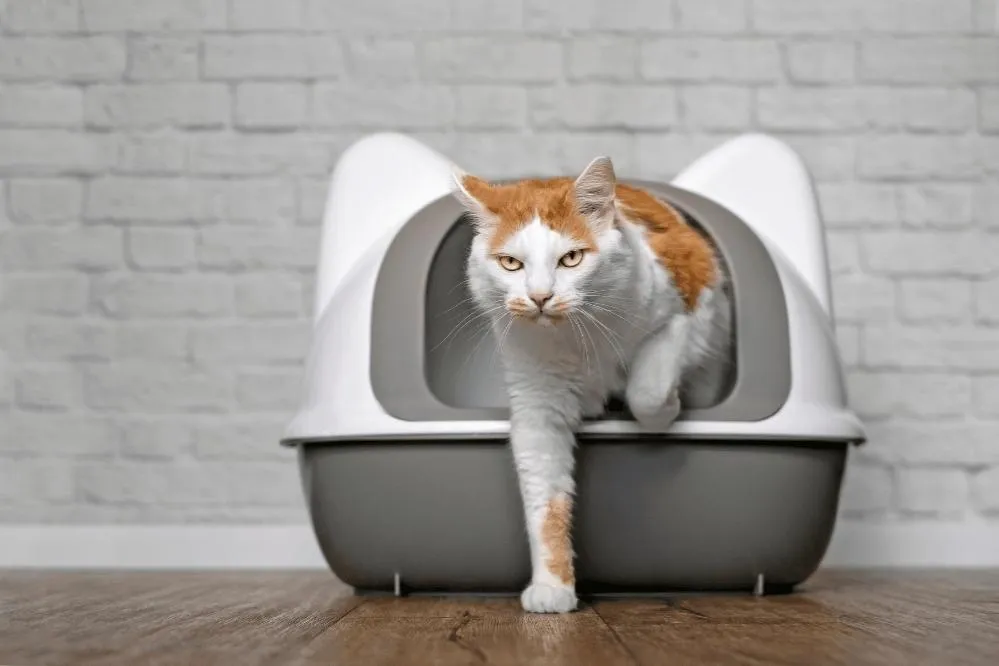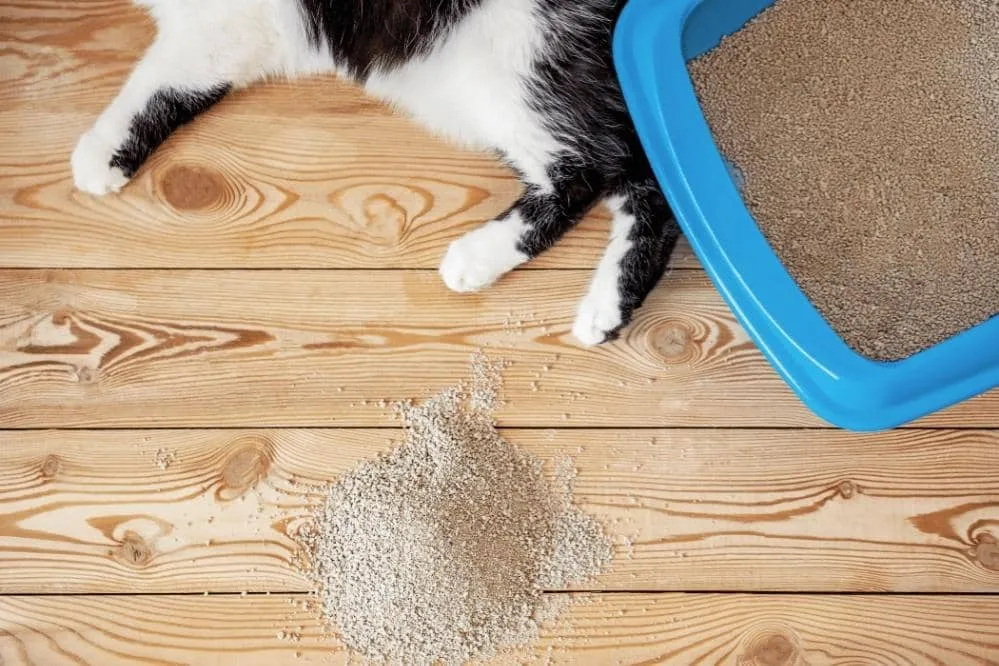How Do Cats Know to Use a Litter Box?

“If man could be crossed with the cat,” Mark Twain famously wrote, “it would improve man, but it would deteriorate the cat.” He’s hardly alone – Emily Bronte, Ernest Hemingway, T.S. Eliot, Cleopatra and Catherine the Great all rank among history’s great cat lovers.
Of course, cats may be the gifts that keep on giving, but that doesn’t mean you want them leaving you little odiferous “presents” everywhere. You know they need to use a litter box – but do they know that?
How do cats know to use a litter box? If they don’t, how can you train them?
Common “Scents”
Webber’s Cats closes by urging you to “Say a cat is not a dog!” That’s pretty obvious, but one thing dogs and cats do have in common is they react negatively to unfamiliar scents – especially that of another dog or cat. Cats and dogs are territorial by nature, and scents are ways of “marking their territory.”
However, while dogs can be pretty notoriously messy, cats are much more naturally inclined to be clean freaks and “clean up after themselves.”
Why is that?
In a word, instinct. Cats naturally prefer to hide their scent from others. Recklessly leaving their “scented” leavings can disturb others and bring territorial challenges from bigger cats and other unwanted attention, which in turn can cause anxiety, which is why house cats use their litter box.
Why a litter box?
Simply put, the texture of litter box sand strikes the right balance between being comfortable against a cat’s paws as they dig and being easy enough for them to bury their leavings.
While every pet needs a little potty training (and we’ll get to that in a second) using a litter box should feel instinctually comfortable, easy, and “right” for your cat. If it isn’t, and they either outright refuse to use the litter box or routinely have “accidents” around the home, then in all likelihood something is wrong, and you should see the vet.
One reason for refusing to use the litter box may be scent. If it smells funny – well, you wouldn’t want to go to the bathroom in a foul-smelling bathroom, would you? As established, scent is a big deal to cats. It’s not just what they use to mark their territory, but a big part of what makes them “feel at home.” Familiar and pleasant scents are welcome, foreign and harshly sterilized odors are not.
Look for deodorizers with scents your cat will like to help make them at ease, so they can “do their business” without feeling anxious – because when it comes to cats, anxiety often means “accidents.”
How to Train Your Cat to Use Their Litter Box?
Of course, just because your cat has instincts to bury their leavings and naturally prefer a spot like a litter box doesn’t mean they’ll automatically “know” to do so. Whenever you introduce a new cat into a new space, therefore, especially if they are kittens, you need to get them used to their new litter box. As such, you’ll want to let them sniff and examine the box at their own will. Don’t rush them. This is one of the most important places in their lives, a place they need to feel completely comfortable, so let them get acquainted with it on their own time and terms.
When it’s finally time for them “to go,” place them near the litter box and wait. Once they do their business, give them positive reinforcement like praise or a treat so they get the idea. You shouldn’t have to do this too many times before they do indeed figure out that this litter box is what they are supposed to use. That positive reinforcement, paired with their natural instinct to want to hide their scent and tidy up after themselves, should quickly convince them that the litter box is the perfect place for them.
One thing you don’t want to do is shout or punish them if they make a mistake. This will only heighten the cat’s anxiety, which in turn will make things more difficult.
Once you’ve done all of that, your job comes next. Clean the litter box regularly – neither your cat nor anyone else will want to go anywhere near it if it reeks from weeks of uncleaned usage.
When cleaning the litter box, however, you want to make sure to avoid harsh chemicals such as what is found in detergent and because, as explained above, the resulting sanitized odor may put off your cat.
One of the biggest quandaries you might face is former outdoor cats turned indoor cats. These cats will be used to burying their leavings beneath soil or other areas. You’ll thus need to be patient as you teach them to use a litter box. To this end, you may need to fill your litter box with soil at first and then start to replace that with sand over successive days, letting your new cat gradually get used to the new smell and surface.
The placement of the litter box itself also matters. You wouldn’t want to conquer an obstacle course just to use the toilet – and if you were forced to do so, no one could blame you if you had an all-too-inevitable “accident” along the way. That’s why litter boxes need to be as accessible as possible for your cat. Make sure there is nothing covering them. They should be flat on the ground, or elevated only very slightly, so your cat doesn’t have to jump with a full bladder or bowels and have an “accident” in the process.
Finally, cats who have not been spayed or neutered and feel bold and aggressive may try and spread their scent to mark their territory. Rather than hide their presence, they want to broadcast their dominance – which can mean marking up your carpeting and furniture. You obviously don’t want that, so this is one more reason to get your cat spayed or neutered.
By taking the proper steps to make your cat comfortable with a litter box, you can enjoy their presence without them leaving little “presents” all over your home.



